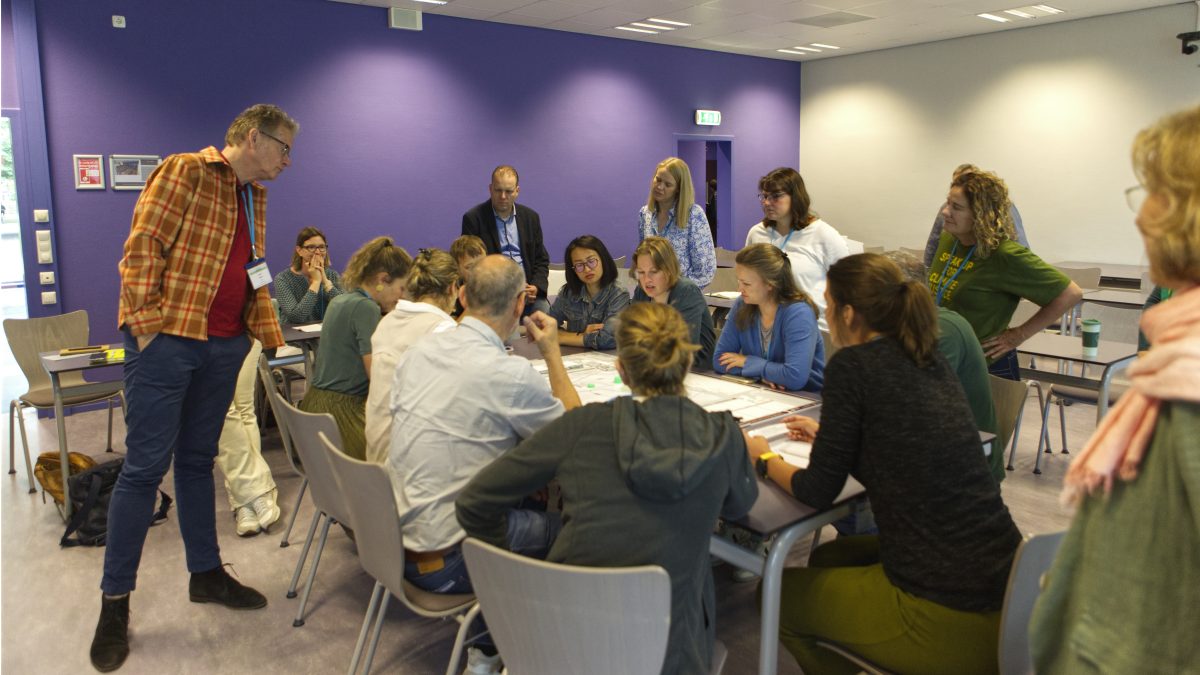The University of Groningen and Partoer developed ‘Facility-Wise’ for projects in Fryslân. Because of a decreasing population there was a need for a co-creation tool that would help with making decisions about the possible loss of rural facilities and services in a community. With intended users several scenario’s were tested using a prototype of the game.
A workshop by:
Suzan Christiaanse – Erasmus Governance Design Studio
Sjoerd IJdema – Partoer
‘Facility-Wise’ offers a participatory way of developing a solution together with different stakeholders and works like a pressure-cooker. During this analogue game there is face-to-face interaction. A moderator ensures everyone participates. Playing in an analogue setting gives better results than a digital setting. This is because the moderator will notice the non-verbal language and can act quick upon these kind of signals. Furthermore you need an independent moderator to make sure opinions and emotions are respected. During the tests the developers found out that a group of ten players is the maximum to make the game work and create a safe space.

Flexible design
The game has a flexible design, but the organizers always have to investigate whether the game is the right instrument for solving a certain problem. If so, this problem is the starting point for the setup and the invited representatives. The game starts with positive statements of the participants, for example telling what is beautiful about the current situation. After each session the players go back to their supporters to discuss the outcome. It can take up to six sessions of playing the game to come to a good place.
The game has a certain routing on a game board and exists of five parts:
- an introduction;
- a SWOT-analysis or role play;
- a brainstorm;
- themes to work on;
- a list with short and long term actions.
In the center of the game board is a map of the local situation and facilities. Participants make moves on the board with chips and it is possible to use SWOT-cards as an argument for a move. During one session of the game you play several rounds to choose possible solutions or to test a certain scenario. If necessary the process during the game can be changed.
A particapatory way of development together with different stakeholders. Works like a pressure-cooker!
Demonstration
During today’s session nine attendees were invited to play the game. Normally a game would take two and a half hour to play, so it was a short demonstration. The case during this game was a region with schools that do not have enough pupils anymore. Each attendee got a role to play, like a director of a school, the mother of a pupil, a teacher and a member of a village association. Each participant moved chips, which represented students in this case, around the map on the board to explain and visualize his or her preferred solution. In this case that could be merging schools, moving students to a different school or other options.